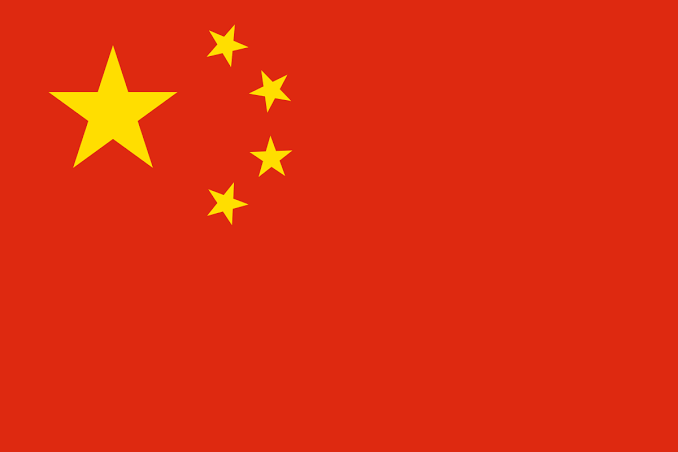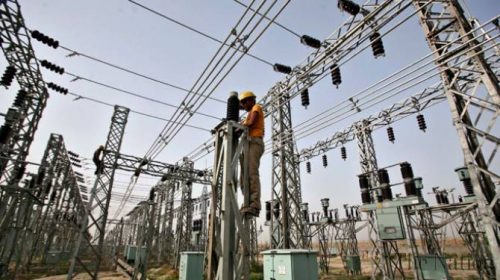China Files Formal Complaint Agains US At WTO

Following Washington imposition of new tariffs on billions of dollars of Chinese imports in an escalating trade war between the two world powers, China says it has filed a complaint against the United States with the World Trade Organisation (WTO).
Just as Oil prices fell as the ongoing U.S.-China trade war cast a pall over markets, with soft South Korean data adding to concerns over emerging markets and a rise in OPEC output. U.S. crude was down 26 cents, or 0.5 per cent, at 54.84 dollars a barrel, while Brent was down 6 cents at 58.60 dollars a
The U.S. this week imposed 15 per cent tariffs on a variety of Chinese goods and China began to impose new duties on a 75 billion dollars target list, deepening the trade war that has rumbled on for more than a year.
China’s Commerce Ministry said in a statement that Beijing would defend its legal rights in accordance with the rules of the international organisation that limit the tariffs each country is allowed to charge. The announcement came one day after the US began imposing 15-per cent tariffs on a variety of Chinese products. In a retaliatory move, China also began imposing new duties on US crude oil. “These American tariffs seriously violate the consensus reached by the leaders of our two countries in Osaka,” said the ministry, referring to trade talks between the two sides in the Japanese city in June.
US President Donald Trump and his Chinese counterpart, Xi Jinping, had agreed to “fully engage” on trade when they met in Osaka during the G20 summit. “The Chinese side is strongly dissatisfied and resolutely opposed to that (the imposition of the new tariffs),” it said. “In accordance with relevant WTO rules, China will firmly safeguard its legitimate rights and interests.”
This is the third complaint China has brought to the WTO over the tariffs. The US on Friday published a written defence in the first of the three legal cases, saying that Beijing and Washington had agreed the issue should not be judged at the WTO. The US submission also said its actions were exempt from the organisation’s rules because they were “measures necessary to protect public morals” — a clause used in the past to argue for trade restrictions over gambling, animal rights and public broadcasting. Under the rules of the WTO, the US has 60 days to try to settle the latest dispute. Then China could ask the WTO to adjudicate, a process that would take several years.
If the US is found to have broken the WTO rules, then China will be given approval to take trade sanctions.
The Trump administration has so far imposed tariffs on hundreds of billions of dollars’ worth of Chinese goods. China has also met every single round of the US tariffs with retaliatory measures of its own, but its countermeasures have been milder. U.S. President Donald Trump said both sides would still meet for talks later this month. South Korea’s economy turned out to have expanded less than estimated during the second quarter as exports were revised down in the face of the prolonged U.S.-China trade dispute, central bank data showed on Tuesday. A move on Sunday by Argentina to impose capital controls is also casting a spotlight on emerging market risks. “Oil will struggle to make substantial headway topside this week with no progress on trade talks or meetings even, soft data from Asia and a possible cracking of OPEC’s resolve to control production,” said Jeffrey Halley, senior market analyst at OANDA. Output from the OPEC rose in August for the first month this year as higher supply from Iraq and Nigeria outweighed restraint by top Saudi Arabia and losses caused by U.S. sanctions on Iran.
OPEC, Russia and other non-members, known as OPEC+, agreed in December to reduce supply by 1.2 million bpd from Jan. 1 this year. OPEC’s share of the cut is 800,000 bpd, to be delivered by 11 members and exempting Iran, Libya and Venezuela. Russian oil production C-RU-OUT in August rose to 11.294 million barrels per day (bpd), topping the rate Moscow has pledged to cap output at under a pact with other producers and hitting its highest since March, data showed on Monday. Nonetheless, Russia aimed to fully comply with an agreement during September to cut oil production among OPEC and some non-OPEC producers, Russian Energy Minister Alexander Novak said in a statement on Monday. “What’s bad for the outlook for global growth is bad for oil at the moment and only big draws in inventories can delay that drift lower,” said Greg McKenna, strategist at McKenna Macro.







Leave a Reply